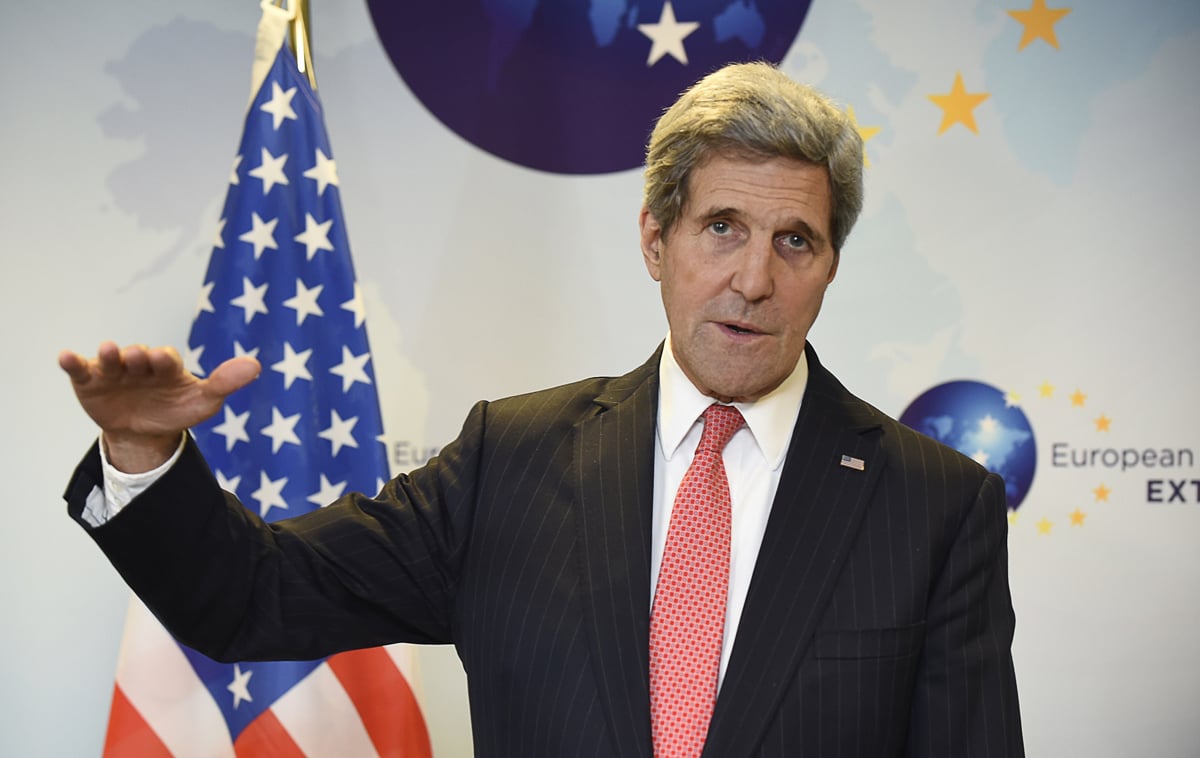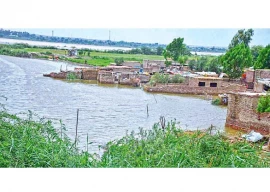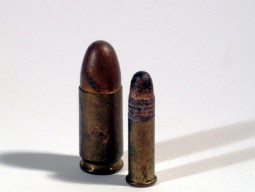
Kerry told the first high-level talks in Brussels of a coalition of around 60 nations that strikes in Iraq and Syria were having a "significant" impact and vowed that they would stay the course.
The Pentagon said Iranian F-4 Phantom jets hit IS fighters in eastern Iraq in recent days but denied any military coordination with long-term adversary Iran. Tehran refused to confirm or deny any strikes.
Iran is not a member of the coalition, but the claim suggested a tacit understanding between Iran and the United States to tackle the common threat from a group that proclaimed a caliphate in Iraq and Syria in June.
Kerry, opening the talks at NATO headquarters, told foreign ministers taking part that the coalition of western and Arab states "will engage in this campaign for as long as it takes to prevail".
"Our commitment will most likely be measured in years," he said.
But he added that "our efforts are already having a significant impact".
Kerry made no comment on Iran, while Iraqi Prime Minister Haider al Abadi, asked about the Iranian action, said he had "no knowledge of any Iranian air strikes."
The United States launched its first strikes against IS in Iraq in August. In late September the strikes were extended to IS targets in Syria, involving the United States as well as a number of allies.
Saudi Arabia, the United Arab Emirates, Jordan and Bahrain are taking part in the air strikes in Syria. Australia, Belgium, Britain, Canada, Denmark, France and the Netherlands are participating in Iraq.
Dozens more countries are offering other support including information and intelligence sharing.
The United States has carried out the vast majority of the air strikes against the jihadists.
It says there are around 30,000 IS fighters in both Syria and Iraq, where the group is accused of atrocities including rape, crucifixion and the beheading of several westerners.
The Pentagon confirmed the Iranian strikes days after video emerged of what appeared to be an Iranian F-4 fighter -- looking like one of those acquired from the US before the 1979 revolution that toppled the country's pro-US shah -- attacking targets in Iraq's eastern province of Diyala.
"We have indications that they did indeed fly air strikes with F-4 Phantoms in the past several days," Pentagon spokesman Rear Admiral John Kirby told AFP.
Iranian forces have been active on the ground in Iraq assisting Shiite militia and Baghdad government units, but this was the first time the United States had confirmed the Iranian air force was conducting strikes against the IS group.
Tehran refused to confirm or deny the air strikes.
"There has been no change to Iran's policy to provide support and advice to Iraqi officials in the fight against Daesh," foreign ministry spokeswoman Marzieh Afkham said, using the Arabic acronym for IS.
The fight against the IS comes amid a US diplomatic drive to agree a deal with Iran over its nuclear program, and officials acknowledge the two sides have discussed the war in Iraq on the margins of the nuclear talks.
US President Barack Obama was reported earlier this month to have secretly written to Iran's supreme leader Ayatollah Ali Khamenei to discuss possible cooperation against IS providing there is a nuclear deal.
The head of Egypt's Al Azhar, one of the most prestigious centres of Sunni Islam learning, on Wednesday condemned "barbaric crimes" committed by the Islamic State group in Iraq and Syria.
Analysts said the tide is beginning to turn on the Islamic State group, with the jihadists losing ground in Iraq and only able to hold on to their positions in Syria.
Officials said the coalition would also look at how to stem the flow of foreign fighters and counter the powerful IS "brand" that has drawn activists from several Western countries, partly through the use of social media.
They will also study ways to disrupt how IS raises finances through oil sales, extortion, plunder, ransom, human trafficking and the sale of Syrian antiquities.
COMMENTS (1)
Comments are moderated and generally will be posted if they are on-topic and not abusive.
For more information, please see our Comments FAQ

1725784957-0/Tribune-Pic-(17)1725784957-0-165x106.webp)
1724760612-0/Untitled-design-(12)1724760612-0-165x106.webp)














I am happy to see Iran taking active part in operations against ISIS. If only Iran can moderate its stance against Israel, I will be happier.